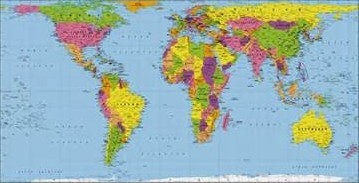Transforming Our Way of Thinking
QUOFLECTIONS™
ON SPIRITUALITY & ETHICS
“There are only two ways to live your life.
One is as though nothing is a miracle.
The other is as though everything is a miracle.”
Albert Einstein
If wonder is the basis for worship, as Carlyle says, then why not immerse oneself in the wonder of the universe? This is my thought as I plan a trip to the Einstein Exhibit at Boston’s Museum of Science.
I experience awe when I consider the cartography of the cosmos. There are perhaps two hundred billion stars in our own small galaxy. Yet the Milky Way is only one of approximately one hundred billion galaxies. Who can imagine the magnitude of the creation?
The discoveries of physics are mesmerizing. The black hole at the center of our galaxy has a mass of 3.5 million suns. This mass of crushed matter exerts an extraordinary gravitational grip whose invisible effects are visible to our planet’s largest telescopes. Who can understand the majesty of the creation?
The likelihood of life occurring by chance is infinitesimal. As Stephen Hawking writes: “If the rate of expansion one second after the big bang had been smaller by even one part in a hundred thousand million million, the universe would have collapsed before it ever reached its present state.” Who can comprehend the mystery of the creation?
The museum reveals more mysteries to my son and me. The fusion of our sun, for example, releases energy 100 million quadrillion quadrillion times each second. Yet the sun has enough hydrogen to burn for another five billion years.
The exhibit also explores philosophical issues. In a play based on a famous attribution to Einstein, “God does not play dice,” actors remind their audience of the unforeseen consequences of technological breakthroughs. Newton’s discovery of gravity leads to more precise trajectories for cannon balls. Einstein’s 1905 formula predicting the rapid release of energy with the transformation of matter–energy = matter times the speed of light squared–leads to the invention of the atomic bomb.
So what will be the unintended consequences of future scientific breakthroughs? Should some discoveries remain secret because of humanity’s capacity for evil? Or should all discoveries be publicized despite the potential consequences? Einstein struggles throughout his life with the implications of his discoveries. A pacifist in 1914, he opposes German nationalism and signs a manifesto to Europeans opposing his country’s militarism. As with his scientific ideas, he encounters opposition. A nation captivated by patriotism is evident when only four scholars affix their signatures to the statement.
Fearing Hitler’s Germany in 1939, however, Einstein proposes the development of an atomic bomb in his letter to President Roosevelt. His initial response to Hiroshima, “Oh, horror,” is a prelude to his lifelong pursuit of nuclear disarmament. “As a citizen of Germany, I saw how excessive nationalism can spread like a disease, bringing tragedy to millions.” Thus, he opposes racism, nationalism and militarism in his quest for a post-nuclear world government that will relinquish patriotism for the pursuit of peace.
Like the universe he studies, Einstein remains an enigma. While “a deeply religious nonbeliever” he describes his mission in theocentric terms: “I want to know how God created this world…. I want to know His thoughts.”
So where do I discover the divine at the Museum of Science? To my surprise, my most visceral response arrives as I witness the high-pitched squeaks of two chicks emerging helpless and hungry from the shells that encompass them. Life in this universe is a miracle worthy of contemplation. Life on this miniscule sphere is also a miracle to behold and experience.
For the sake of this life, especially the wonder of human existence, may Einstein’s vision of a world at peace be realized. Perhaps his most profound reflection concerns the fulfillment of this dream: “The release of atomic power has changed everything except our way of thinking…the solution to this problem lies in the heart of mankind.”
©2003 Harry Rix. All rights reserved.
Related Articles
Perceiving Good Amidst Evil Fosters Hope
Glimpsing Our Shadows
What Wouldn’t Jesus Do?
The Popularity of Prejudice
Mental Illness Prompts Boston Bomber
Counseling a Sex Offender

